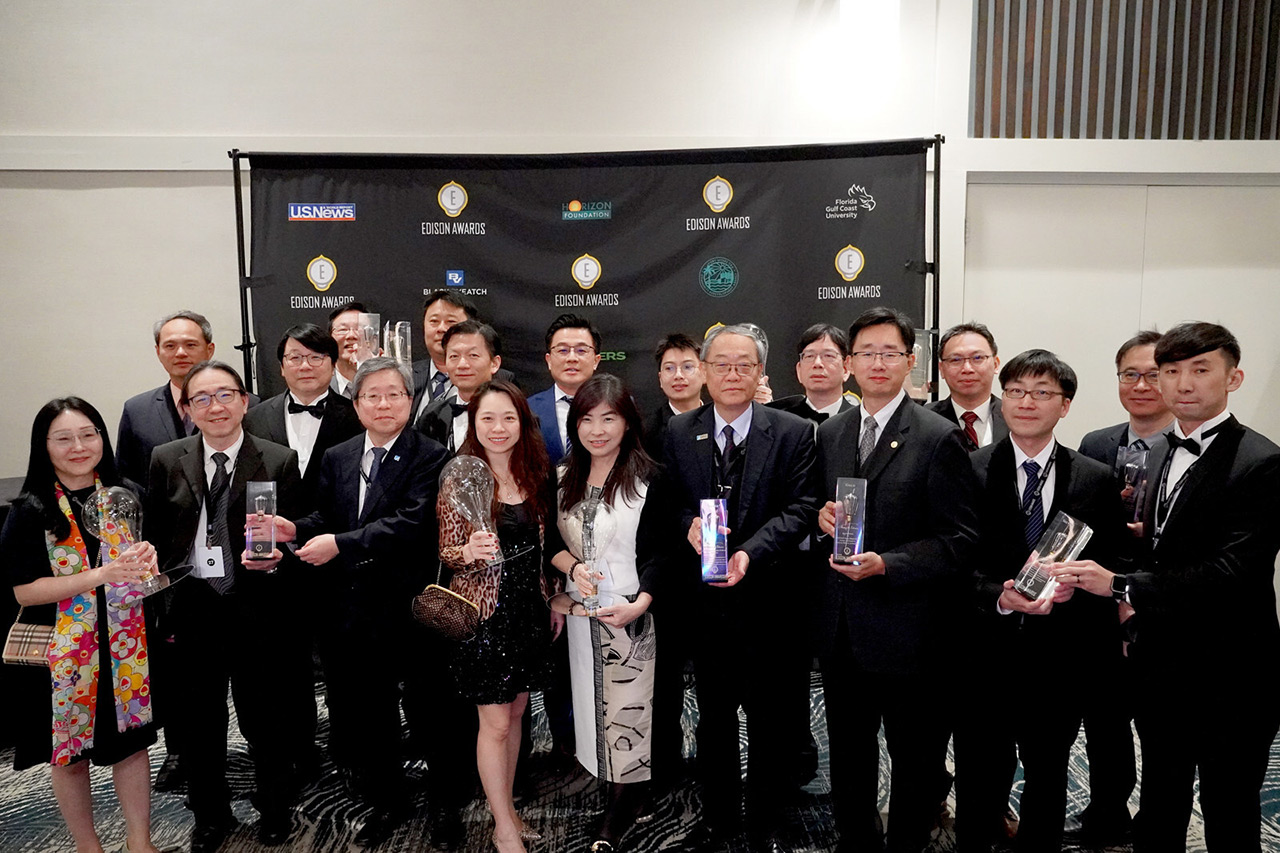Feature
ITRI Wins Seven 2025 Edison Awards for Groundbreaking Technologies
ITRI secured an impressive seven awards at the 2025 Edison Awards™ with its cutting-edge technological innovations. Out of 140 winners, ITRI garnered three golds, three silvers, and one bronze, holding the highest total by an Asia-based organization this year. This also marks the highest number of wins by the Institute in a single year and extends its winning streak at the Edison Awards™ to nine consecutive years, placing it alongside industry giants like Dow and DuPont.

ITRI receives three golds, three silvers, and one bronze at the 2025 Edison Awards in Florida on April 3.
“ITRI, in a lot of ways, is so consistent in innovating and bringing new products to market. You continue to create to make people’s lives better. You’re very good about looking at recyclability and breaking down different solutions that ultimately allow for new products to be made. The fact that you’ve got seven winners this year is a testament to your hard work.” said Frank Bonafilia, Executive Director of the Edison Awards. He also noted that he was impressed by ITRI’s innovations such as NaPoGlass, which filters wastewater using recycled LCD glass; the Dual-Phase Hydrogel, which speeds up post-surgical healing; and the Adaptive Cold Energy Management System, which cuts refrigeration energy use by up to 20%.
“We are proud to announce ITRI’s remarkable achievement at the Edison Awards this year, securing seven out of Taiwan’s 18 awards,” stated ITRI President Edwin Liu. “Our winning technologies span three critical sectors: AI, sustainability, and biomedical technology. In AI, we have cybersecurity gatekeeper Janus, EV fleet charging solution Fleetchargo, Smart Aqua Leak Finder, and Adaptive Cold Energy Management System. In sustainability, our NaPoGlass removes heavy metal from wastewater, and Low-Carbon Laser H-Beam Welding optimizes construction material production. In biomedical innovation, Dual-Phase Hydrogel accelerates post-surgical recovery. We are proud to see these advancements enter the market, underscoring our commitment to driving commercialization,” he added.
ITRI’s Winning Innovations:
- Diverse AI Applications for Industry Needs
- Discovering Potential in Biotechnology and Sustainability